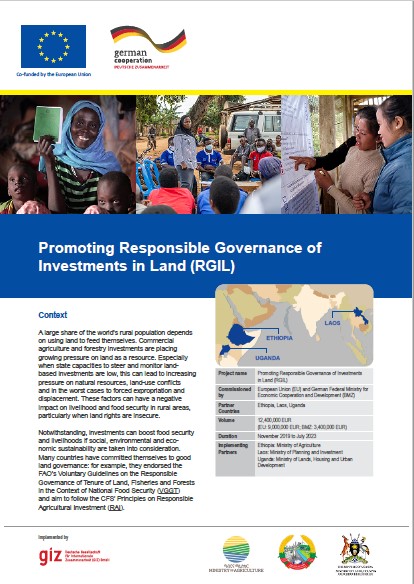Promoting Responsible Governance of Investments in Land (RGIL)
The RGIL project is part of the Global Programme Responsible Land Policy (GPRLP) and is implemented in Ethiopia, Laos and Uganda. RGIL aims to ensure that investments in land are productive, contribute to sustainable land management and respect the rights and needs of local populations, in particular vulnerable groups and women. The project is funded by the European Union and the German Federal Ministry for Economic Cooperation and Development (BMZ).



